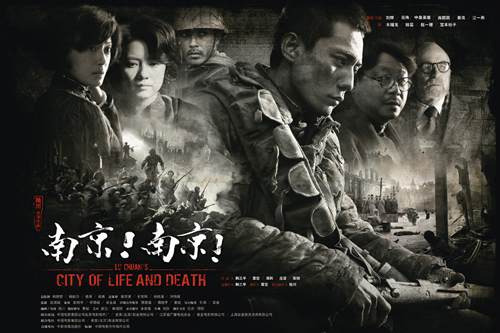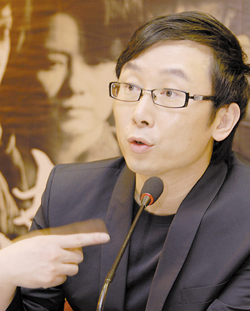City of sorrow: Competing film portrayals of the Nanjing Massacre
|
A poster of "City of Life and Death" [China.org.cn] |
"I gave 'Schindler's List' 95 out of 100, but it's a pity the film didn't reach the level of finding inevitability in contingency at the end," Lu told Movie World magazine, "I hope the 'City of Life and Death' can do a better job in finding answers to the ultimate question."
The ultimate question is; why did ordinary Japanese soldiers behave like animals and what on earth exists in the dark side of human nature that creates such brutality when right and wrong, rules and morality are cast aside in the context of total war. Lu's "City of Life and Death" is not about how shocking the war crimes are; it is the depiction of ordinary people during one of the darkest periods of history. There are no leading actors, no leading actresses, just a portrayal of the struggles of humanity.
But "City of Life and Death" gave something fresh to the audience which has never appeared in any previous Chinese movie. In the past, Japanese in Chinese films are shown as a bunch of killing machines, or a group of cold-blooded clowns. But in Lu's film, he gave us a perspective of a Japanese military officer who felt guilt and had a conscience that had not entirely faded away.
|
Lu Chuan answers questions from media at a press conference. Many Chinese people said he created too good an image of the Japanese, a criticism that confused Lu. [File photo] |
"I wanted to show how war can completely destroy a normal person," Lu said, insisting that according to soldiers' diaries he has read, most Japanese soldiers at that time were indeed normal people.
"If you read the diaries, you don't find any militarist slogans, or anything about loyalty to Emperor of Japan, you just find that they wanted to find some red beans, or sugar to make soup, and so on," he added.
Lu's portray of Japanese army caused controversy. Many Chinese people said he created too good an image of the Japanese, a criticism that confused Lu.
"I'm Chinese; I am not on the wrong side. But the most awful thing that happened in Nanjing is not that a herd of beasts did a beastly thing, but that a group of human beings did a beastly thing."
When asked whether there was any record of such good people in the Japanese army, Professor Tang Daoluan, the curator of John Rabe memorial, said she was not sure.
 0
0 








